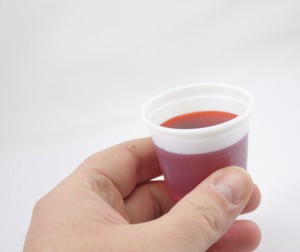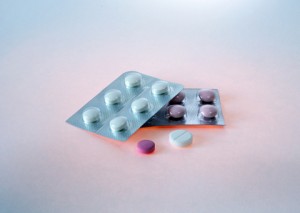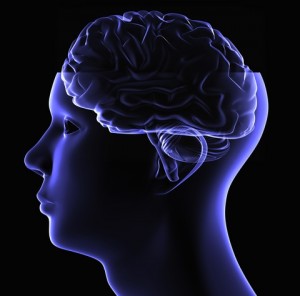Table of Contents
Over-the-counter drugs are rigorously tested for safety by the United States Food and Drug Administration. This organization performs countless reviews to ensure that the drugs that line store shelves all across the nation are free of nasty side effects and dangerous toxins. In most cases, the containers that hold these drugs contain specific instructions, telling users how much to take and how often to repeat the dose. If users follow these instructions to the letter, the drugs are safe and effective. But, if users stray from these instructions, taking larger doses or placing doses too close together, the drugs can cause some nasty side effects. Long-lasting over-the-counter drug abuse can also lead to addiction issues.
Cold Medicine

While almost any over-the-counter medication can be a target for abuse, cough and cold medications tend to be particular favorites, especially among adolescents. According to the Substance Abuse and Mental Health Services Administration, nearly one million people ages 12 to 25 used cold medication to get high in 2006. It’s a popular route people use.
Cold and cough medications often contain the active ingredient dextromethorphan, which can be an effective medication that suppresses the urge to cough. The drug can also have other unintended effects. As the drug builds up in the bloodstream at high doses, the user may begin to experience a profound feeling of relaxation, along with mild hallucinations. According to the National Youth Media Anti-Drug Campaign, users often report that higher doses tend to cause more and more severe symptoms, with users reporting a complete disassociation from the body at extremely high doses.
Cold medicines containing this ingredient are available almost everywhere, and often, no prescription or proof of age is required for purchase. Users can buy these medications in a sticky syrup form that they can drink, or they can purchase the drugs in a pill format. Some Internet retailers even sell dextromethorphan in a powder format that users can snort or mix into a drink.
While some users find abuse of cold medicine to be pleasant, causing sensations similar to acute alcohol intoxication, not all sensations are so pleasant. In fact, according to the National Institute on Drug Abuse, dextromethorphan can cause unpleasant side effects such as:
- Nausea and vomiting
- Fast heart rate
- High blood pressure
- Numbness
- Weakness
High doses of dextromethorphan can also cause death, as the decongestants and dextromethorphan in these medications combine and slow down breathing. A user might breathe so shallowly and so slowly that the brain won’t have access to the oxygen it needs, and death can soon follow. This side effect is rare, but it isn’t unheard of.
Some teens abuse cold medications in so-called “pharming” parties. Each participant is asked to raid the family medicine cabinet, and bring along all prescription and over-the-counter drugs found there. Then, all medications are mixed together in a large bowl, and participants are asked to ingest handfuls of the medications and wait for them to take effect. Cold medications, when combined with other medications, can be especially deadly. Combining a system depressant, like dextromethorphan, with another system depressant, like a painkiller, can cause a catastrophic loss of breathing or an increase in heart rate. These problems can be difficult for medical professionals to counteract and treat, as many teens emerging from these parties have no idea what was in the pills they took, and they may have no idea how large of a dose they ingested. Teens who attend even one pharming party should be considered at serious risk for drug-related problems.
Other Drugs of Interest

While cold and cough medications might be the most popular drugs people use to get high, they’re not the only targets for abuse. In fact, researchers writing for the journal Psychotherapy and Psychosomatics found that many people who go to gyms use high doses of supplements in order to achieve their fitness goals. These supplements might contain harmless vitamins, but they may also contain dangerous ingredients such as ephedrine or steroids. These medications might be legal, but they can also lead to unintended problems such as secondary sexual changes, increased aggression or personality changes. Drugs in the amphetamine family have also been linked to addiction, and people who begin taking those drugs to stay slim may find that they need to take the drugs just to feel healthy and normal. The drugs change the way the mind works, and addiction is often soon to follow.
Teen girls may also feel pressure to lose weight and stay trim, despite what their bodies might want to do, and they may also turn to over-the-counter medications to help them drop pounds. These teens may consume laxative in high doses, to help food move through their systems quickly without truly being digested. People who take high doses of laxatives like this might face serious health consequences, as they may become extremely dehydrated and unable to maintain the proper electrolyte balance needed for healthy brain function. They may also become so severely underweight and malnourished that they face heart, kidney or liver damage. It’s a serious problem that simply cannot be ignored.
Over-the-counter painkillers such as Advil and Aleve can also be targets for abuse. A study published in the Journal of Psychiatry and Neuroscience found that about 70 percent of people living in Western countries use over-the-counter painkillers like this on a semi-regular basis. Instead of taking the medications when they feel pain, and stopping their use when the sensation of pain begins to recede, these people may take painkillers each and every day. That use may have begun with a legitimate medical condition, but over time, the people may have started using the drugs compulsively. These drugs may seem benign at low doses but at high doses, or if taken on a regular basis, they can damage the liver or the kidneys. They can be hard for the body to clear, and sometimes, the damage that is done is not reversible.
The Link to Addiction

In the past, addiction was considered a disease of willpower. If people could simply work up the energy to stop doing the things that caused them harm, they could get better and move forward with their lives. Now, modern research suggests that many addictions begin with chemical changes in the brain. Often, these changes take place within a specific portion of the brain that creates and responds to dopamine. This neurotransmitter is released when the brain determines that something pleasurable is about to happen. Drugs that amplify this dopamine pathway flood the person with happy, comforting, euphoric sensations and those sensations may become more and more difficult for the person to experience without the use of drugs. Very addictive drugs like heroin have a direct link to the dopamine pathway, and no one would ever suggest that heroin is not addictive. But some over-the-counter drugs can also impact the dopamine pathway. For example, a study published in the journal Psychopharmacology found a link between over-the-counter cough syrups and the dopamine pathway. It could be that these drugs are working on exactly the same parts of the brain, causing addictions in much the same way that hard drugs would cause addiction. It’s a serious risk.
In addition, some over-the-counter drug abuse can become compulsive, meaning that the person continues to abuse the drugs even though they know quite well that the drugs are causing harm. These changes might also be built into changes in body chemistry, but they can also have their roots in habits or in other mental illnesses that the person is facing. A person with anorexia, for example, may continue to abuse laxatives due to their eating disorder. That person may know that the laxatives aren’t healthy, but they may be unable to stop. The mental illness drives the abuse. A person with chronic pain may abuse painkillers, unless that person learns to control pain with biofeedback, massage, exercise or better mental health. Until these issues are addressed, the compulsive use may persist.
Spotting the Problem
Some over-the-counter drug abuse can be difficult to spot. Since there are no needles involved, arrests due to the behavior or high costs associated with the purchase of the drugs, many of the hallmarks families use to identify drug abuse may be missing or just inappropriate in this case. That doesn’t mean, however, that there are no signs families can watch for.
According to the American Society of Anesthesiologists, people who abuse cold medicines may:
- Have a sticky-sweet odor to their breath
- Stash empty pill bottles or cough medicine bottles in their trash, or carry them in their bags
- Buy medications from online pharmacies in large quantities
- Seem confused or disoriented
People who abuse any form of over-the-counter drug may also spend time with other people who also seem impaired. They may spend a significant amount of money on their drugs of choice, or they may constantly be heading to stores or pharmacies to buy more drugs. They may discuss a craving to use drugs, or they may openly use drugs in the presence of their family members. All of these actions can indicate an underlying substance abuse problem.
What to Do
Handling the problem often means having a clear and direct conversation with the person who is abusing drugs. Some people honestly believe that over-the-counter drugs are somehow “safe” to abuse, since they are sold in stores and legal to buy for people of almost any age. It might take just a simple, honest discussion to help break that myth and help the person understand that the drugs are quite powerful and can have a serious impact on their health for years to come.
There are some people who need a more formal conversation, however. These people may have resisted earlier discussions regarding drug use, or they may be facing other problems that make abstaining from drug use even more difficult. These people may benefit from a formal intervention, where the person’s loved ones describe the impact
the drug use is having on the network of the family and the health of the user. These can be powerful conversations that help the user to truly see and understand the impact of their drug abuse. In fact, they could be the most important conversation your family will ever have about drug use and health.
At Axis, we’re here to help; whether you need advice on having that conversation or your loved one is ready to enter treatment, we can offer support and guidance. Our impatient program can help people dealing with addiction, mental illness or both. We keep our client list private, ensuring confidentiality, and we only use methods that have a sound backing in science. If you or someone you love is abusing over-the-counter drugs, please call us to find out more about how we can help.


